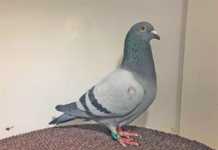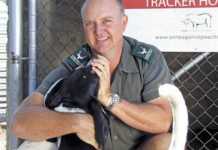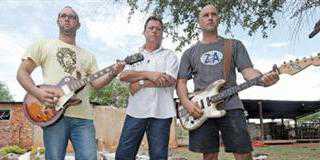Armed street committees.
Crime is down and the former unemployed working in these committees now have a new sense of pride and purpose. Mike Burgess reports.
By 2009, it had all become too much. Gangs were terrorising the town of Indwe and residents were prisoners in their own homes. Something had to be done. Residents’ home-grown solution gives new meaning to “community policing”. They formed street committees and began cleaning up the town.
“When we’re on patrol, the skelms back off,” says Jane Smith, mother of six and a member of one of Indwe’s six street committees. Since last year, the committees have helped re-establish order in Indwe and improved cooperation between the SA Police Service (SAPS) and local communities.
“At first, the police thought we wanted to take their work, but now they support us,” says Jane. Indwe SAPS station commander Malibongwe Nyume says the committees have proved their worth, and even some murder cases have been solved with their help.
Prisoners in their own homes
But Malibongwe is reluctant to admit the SAPS was incapable of controlling crime during 2007 and 2008. But in 2007, housebreaking, robbery, murder, rape, and serious assault – especially stabbings in and around the town’s various taverns – were commonplace, says Jane. Then things got worse.
In mid-2008, gangs began preying on Indwe’s residents, with unemployed youth robbing and assaulting people, especially the elderly. “The elderly used to lock themselves in from 16:30,” says Edmund Smiles, chairperson of the Indwe town/Rocklands (Sector 2) street committee. His 20-year-old son Gershwin was killed in a stabbing incident. “They would target old people, take the last food from their cupboards, eat what they could and sell the rest.”
Crime close to home
Gang violence tore Jane’s family apart. Her son Eugene was a member of the Wests, a gang that controlled the town and the nearby areas of Rocklands and Paddavlakte. Eugene prowled the streets at night, testing the boundaries of the law and his own courage by crossing the railway track into the townships – the night-time world of the Dragons.
Today Eugene is awaiting trial in Grahamstown for alleged involvement in housebreaking and rape. Jane is convinced he’s innocent, but one detects a sense of regret in her voice at not having saved him from the streets. “They all know what’s in the books,” she says, pointing to a collection of Jehovah’s Witness literature in her home, “but when they get outside, they forget everything they learnt.”
However, Eugene is far better off than his cousin and former comrade in the Wests, David Smith, who was stabbed to death on Indwe’s main street. This was one of the incidents that shocked the community into taking action to combat Indwe’s crime wave. “The Dragons committed that murder in broad daylight. It was then that people wanted to get involved,” says Jane.
Taking action
“I told the community we needed to do something drastic,” says Edmund. “We decided to oppose bail for those arrested for the murder.” Community members picketed outside the magistrate’s court.
When the alleged killers remained in custody, Indwe could enjoy the festive season for the first time in years, without being terrorised by the gangs. Then, in the new year, the community liaised with the SAPS and became more involved in sector policing and the Community Policing Forum. By spring 2009, street committees were active in six sectors.
More than 300 concerned citizens with whips, plastic pipes and knopkierries could be seen patrolling Indwe’s streets in orange vests, confiscating knives and other weapons, and monitoring known tsotsis and public alcohol consumption. But inevitably, certain committee members’ enthusiasm resulted in the manhandling of certain individuals, and the SAPS began arresting members for assault.
A lack of funding for torches, clothing and air time for communication between committees, also resulted in a membership drop.
An ongoing peace mission
Today, only 60 to 70 determined committee members still patrol Indwe’s streets. “It’s our children who walk around here at night. That’s why we do this,” says Jane. “I can’t sit watching TV while people are being hurt.” The committee has given the members a sense of identity, Jane says, before grabbing her vest and a police protector, a stun gun that spits out a blue flame of electricity.
It’s clear the remaining street committee members are determined to retain control of their neighbourhoods, and genuinely fear a return to the horrors of 2008.
In Sonwabile Township (Sector 1), elderly Boniswa Dyani is the chairperson of the township’s committee that consists of about 10 ladies armed with plastic whips. “I joined the street committee to deal with the crime in the community, and it’s decreased a lot,” Boniswa says. “I’m not afraid. We search people for knives, and if someone has one, we circle him and get stuck in with our whips until he gives it to us.”
Chairperson of the Manyano Township (Sector 3) committee, Mzokisi Pama, aka Mafia, owns the One Stop Tavern, which he locks at 10pm to minimise booze-fuelled fights. “There have been no fights here, and we’ve solved many crimes with the police. If somebody is stabbed in the community, we make an effort to get information.”
In Mavuyo Township, Sector 4’s chairperson Selina Titana resolves many social conflicts in her home. “This house of mine – it’s a court. There’s always a problem to sort out,” she says. As for the tragedy of the youth being dragged into violent crime, Selina says, “Kids involved in crime need direction, love, understanding and care.”












